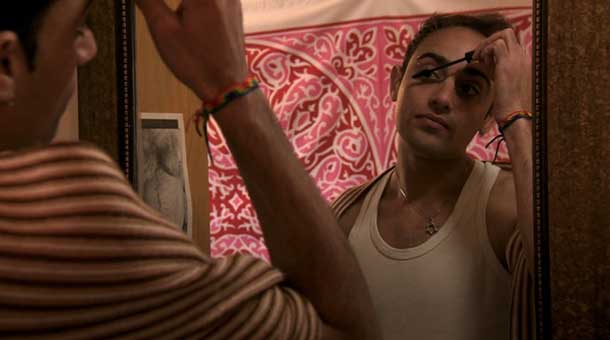Invisible Men
Friday: 4:00 pm – Wilson Theater
Sunday: 11:00 am – Domenico’s
 Category: Documentary
Category: Documentary
Country: Israel,Netherlands
Language: English Subtitles
Rating: PG-15
Runtime: 68 min.
Director: Yariv Mozer
Producer: Yariv Mozer
Website: Invisible Men
FaceBook: Invisible Men
Early morning. The rundown streets of south Tel Aviv are still empty. Louie, age 32, looks right, then left, then right again. He makes his way onto a side street, scanning the people around him. He approaches a bus stop and waits calmly, always looking down, the scar across his cheek shimmering in the light. He boards the bus and sits down, glancing at the attractive man near him—until a border policeman appears at the front. Louie panics: should he make an exit? No, he can’t afford to pay twice. Louie then isolates himself in the back, facing away from the driver, retrieving a Jewish Star from inside his shirt. For now, he’s okay. After all, he’s been at this for 8 years.
Louie never intended to move to Tel Aviv. Like many other Palestinians in the period after Oslo and before the Second Intifada, he would work in Israel painting homes and return to the West Bank on the weekends. He even used to rent a cheap apartment in Tel Aviv with a friend from Nablus. But for Louie, the city was never just a place to make money. In Israel’s liberal cultural capital, Louie found the freedom to express his homosexuality in a physical way that the social mores and laws of Palestinian society do not permit. That freedom was compromised when, during a fight, his roommate secretly sent his father a picture of Louie with another man. The next time Louie saw his father, he was greeted with a knife to the cheek—a punishment for defaming the family’s honor, for violating the laws of Islam, a warning of worse to come. Louie was left permanently scarred, permanently deterred from returning home.
And so this man has been hiding illegally in Tel Aviv for so many years, so desperately alone that you can see it in his eyes. Louie always dodges other Palestinians or even Arab Israelis who could inform his family in Nablus—or his relatives in nearby Jaffa—of his whereabouts. Louie further knows that Arabs, regardless of citizenship, automatically consider him a traitor: if he’s gay and survived in Israel for so long, he must be collaborating with Israel in exchange for protection. At the same time, Louie cautiously avoids Jewish Israelis. Because he’s so utterly vulnerable to the authorities, because he has no bank account, because he has no healthcare, Louie makes an easy target for extortion. And Israelis, Jewish or Arab, have reason to avoid him too: because Louie is a tremendous perceived security threat, to be in contact with him is a crime. He is totally isolated.
Then I met Abdu, age 23. Abdu was exposed as gay in Ramallah, accused of “espionage,” tortured by Palestinian security forces, and hunted down by his family. So he made connections with gay Israelis. With their help, he fled to Tel Aviv, connected with human rights lawyers and foreign embassies. He landed asylum outside Israel almost as quickly as he arrived.
Unlike Abdu, Louie has always been conflicted about leaving Israel. But when he got wind of this “miracle case,” Louie insisted that their lawyer introduce them. The meeting that followed was tense. Abdu was complacent yet caring, Louie—furious, jealous, confused. “How can you leave forever? This is your culture! You’re from here!” Louie demanded. Abdu’s stark reply: “Your culture? Israel? Palestine? Everyone’s trying to kill you!” Days later, Louie was spontaneously arrested and shipped back to the West Bank. Like he had so many times before, Louie snuck back inside Israel. He called his lawyer the next morning. Louie was finally ready to take the first step to leaving Israel permanently.
The film “The Invisible Men” will tell Louie’s story as he is forced—just for being gay—to forever abandon his identity, culture, and home. On that journey, we will discover other gay Palestinians, Abdu and Faris, who are hiding in Tel Aviv, trying to get there or find a way out. These men, alienated on so many levels, have nowhere to run and are some of the Israeli-Palestinian Conflict’s greatest victims. But even with asylum, their personal conflict—hardened by physical, essay order uk writers only cultural, and emotional borders—may never subside or heal. The very least we can do is let these “invisible men” be seen.


